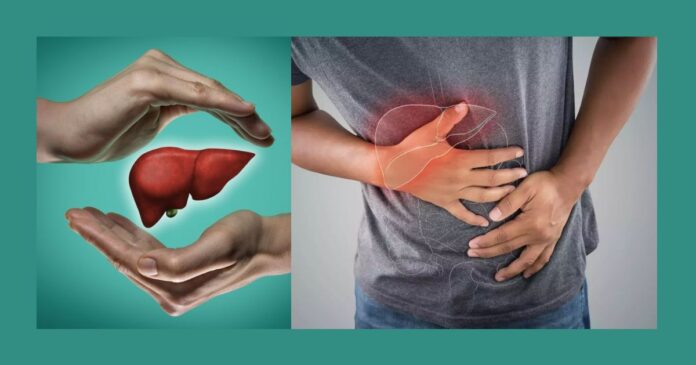The liver is a vital organ responsible for detoxifying the body, among other functions. While it’s not possible to directly observe if the liver is full of toxins, there are signs and symptoms that may suggest liver problems or an increased toxic load.
Warning signs that your liver might be struggling with toxins include:
1. Jaundice:
Yellowing of the skin and whites of the eyes can indicate liver dysfunction, often due to the buildup of bilirubin.
2. Fatigue:
Persistent fatigue and low energy levels may be related to an overburdened liver’s inability to process toxins effectively.
3. Abdominal pain or discomfort:
Pain or discomfort in the upper right side of the abdomen may signal liver issues.
4. Digestive problems:
Nausea, vomiting, bloating, or diarrhea can be linked to liver problems.
5. Dark urine:
Dark-colored urine could be a sign of liver issues, as the liver helps process waste products.
6. Pale stools:
Light-colored or pale stools may indicate liver problems or issues with bile production.
7. Unexplained weight loss:
Sudden or unexplained weight loss could be related to an overworked liver.
8. Skin issues:
Skin problems such as itching, eczema, or skin rashes may be associated with liver dysfunction.
9. Swelling:
Swelling in the abdomen or legs may indicate fluid retention, a potential sign of liver issues.
10. Mental changes:
Confusion, memory problems, or difficulty concentrating can be associated with liver problems.
It’s essential to keep in mind that these signs and symptoms can be linked to various health conditions, not just liver issues. If you suspect liver problems or are concerned about your liver’s health, it’s crucial to consult a healthcare professional for a proper evaluation and diagnosis.
To support your liver and reduce its toxic load, you can consider making lifestyle changes such as:
1. Eating a balanced and healthy diet rich in fruits, vegetables, and whole grains.
2. Reducing or eliminating alcohol consumption.
3. Maintaining a healthy weight.
4. Staying hydrated by drinking enough water.
5. Exercising regularly to promote overall health.
6. Reducing exposure to environmental toxins.
7. Minimizing the use of over-the-counter and prescription medications unless prescribed by a healthcare provider.
Consult with a healthcare professional to determine the best approach for your individual health and to address any concerns about liver function or detoxification.
also read other news :
what are the 10 main functions of the liver ?
